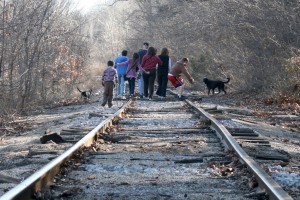Helping the Addicted Person
Part 2 of a 3-Part Series
 There are many roles that family members play in the web of addiction. This article examines these roles and offers hope to those who, as a helper of the addict, fit one or more of these descriptions. Each role develops out of an attempt to “make sense” of addiction, and to deal with the chaos that it brings.
There are many roles that family members play in the web of addiction. This article examines these roles and offers hope to those who, as a helper of the addict, fit one or more of these descriptions. Each role develops out of an attempt to “make sense” of addiction, and to deal with the chaos that it brings.
The Hero
This family member often devotes his time and effort to making the family unit appear “normal” or healthy. The Hero is often an overachiever and is highly successful in school, work, and/or social activities. The Hero is usually seen as a kind, helpful, positive, and healthy person, but as in the comics, the Hero hides his true identity. Heroes typically hide the fact that they feel isolated and frustrated, and are exhausted at keeping up the facade of the family. Sometimes the Hero has a very difficult time with personal relationships in his adult life and can become sick from stress.
The Scapegoat
The Scapegoat is often the family member who appears defiant, hostile, and angry. He is often in “trouble” at school or work, or in social situations. The Scapegoat’s role in addiction turns the attention away from the addict or alcoholic in the family, by driving the focus onto their negative or unhealthy behaviors. The Scapegoat often engages in high-risk behaviors as a way of expressing their inner feelings of emptiness. The Scapegoat may experiment with drugs or alcohol, may become sexually active at an early age, get into frequent fights, or may seemingly fail in work-related situations as an adult.
The Mascot
The Mascot may also be known as the family Jester. This role is played out by the family member who constantly tries to make everyone around them laugh. Humor is their greatest ally and it is often subconscious. While trying to lighten the situation with humor and laughter, the attention, is once again drawn away from the addict or alcoholic. The family unit may even shield the Mascot from the intensity and severity of the problems in the family, which enables the Mascot to learn how to “escape” problems in other areas of his life. The Mascot is often constantly busy and can become anxious or depressed when life is not constantly in motion. Focus and concentration become difficult and can have negative effects on the Mascot’s work and social life.
The Lost Child
This family member may not be very visible. The Lost Child is often shy and may feel like an outsider in both social situations and in their own family. They may feel ignored or believe that they are not as important to their family as others are.
The Lost Child’s way of dealing with the addiction in the family is to withdraw from the others. The Lost Child avoids drawing attention to himself, even if this is to his detriment. Drawing attention to himself is seen as a negative thing.
 The Caretaker
The Caretaker
A more common or popular term for the Caretaker is the Enabler. The Caretaker adopts the responsibility of keeping the family going and “taking care” of the addict. This family member repeatedly takes the addict’s problems upon themselves and usually ends up diverting consequences away from the addict. Examples of the Caretaker’s behavior include paying the addict’s bills, lending the addict money, giving the addict frequent rides, or offering him a place to live. While the Caretaker is doing just that, namely taking care of the addict, he is also enabling the addictive behaviors and not allowing the addict to take responsibility for himself.
Christian Counseling Can Help You Deal with Addiction
You may be able to relate to one or more of these roles within a family system of addiction. Perhaps you are able to recognize these roles in your family members as well. While each person plays a role in some capacity, there is hope for health and change for each person. Help is available for you and your family. Christian counseling offers a safe place to talk about addiction and the pain it causes, and allows you to begin to heal from it. As a Christian Counselor and Chemical Dependency Professional, I am more than willing to walk with you through the illness of addiction.
“Our Journey from Addiction to Recovery,” Hamrah, an education and resource website http://hamrah.co/en/; “Recovered Family,” a Recovery Place resource for addicts and their families, http://www.recoveredfamily.com/codependency/codependency-and-family-roles.aspxPhotos
“family hike,” courtesy of woodleywonderworks, Flickr CreativeCommons (CC BY 2.0); “Urrghh…,” courtesy of Sarah, Flickr CreativeCommons (CC BY 2.0)

